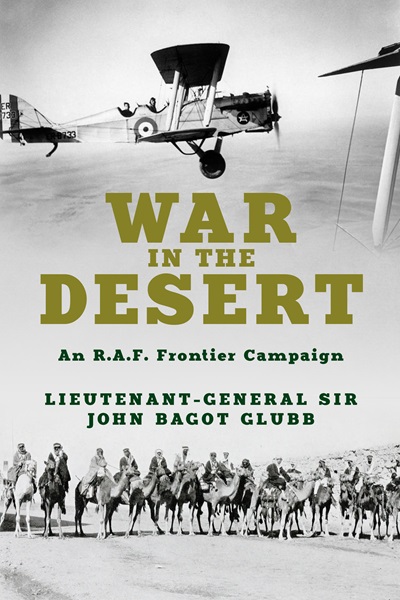
An enlightening account of the R.A.F.'s perilous early desert flying days in Iraq and what is now known as Saudi Arabia in the 1920s.

An enlightening account of the R.A.F.'s perilous early desert flying days in Iraq and what is now known as Saudi Arabia in the 1920s.
This record of Britain’s imperial intervention in unfamiliar and often uncharted territory is the perfect read for fans of T.E. Lawrence, R.H. Leishout, Ian Rutledge, and David E. Omissi.
In 1920, a young John Bagot Glubb is posted to Iraq as a regular army officer having survived the First World War. With the R.A.F. struggling to recruit officers to establish security outposts supporting flying operations in the desert, he was offered a position on the Air Staff. Already learning Arabic and with an affinity for the Iraqi people, he enthusiastically took up the challenge.
Using his own diaries, records, and recollections, Glubb vividly and affectionately recounts his time with the Bedouin tribes in the hostile Arabian desert. With British authorities attempting to establish lasting peace between warring tribes, Glubb immerses himself in Bedouin culture. During this time, constant desert raiding parties are devastating the lives of the peaceful Iraqi nomadic shepherds. Battling to offer protection with limited communications, few motor vehicles, and intermittent air support, he does what he can to protect the traditional way of life of a people little understood by those in power.
Through Glubb’s extraordinary personal account, the reader gains real insight into the difficulties of organizing Western governance and defence in a country far from home.